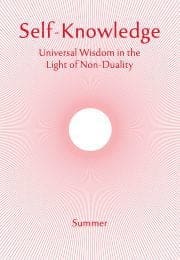Seek and You Shall Find
One of the most significant aspects of the teachings of non-duality is that they insist on the active investigation of the highest truth. The message of all the great wisdom traditions may be the same, but it is not sufficient to rest content with blind faith in the greatness of the teaching or the spiritual stature of the founder. The message itself is a call to seek and find the truth that has been proclaimed. The emphasis is on the search for enlightenment. ‘Seek and ye shall find; knock and it shall be opened unto you.’
The turning point in this search comes when we realise for the first time that its goal will not be found somewhere else in the outer world, like the man who dreamt of a treasure buried in Cairo, and journeyed all the way from Baghdad, only to be told that the treasure he sought was to be dug up from the grounds of his own home. It is by turning the gaze within that the true wealth of wisdom is to be uncovered. In the words of the Vedanta classic, the Avadhut Gita:
When, as a pilgrim, I began to journey towards Thee, all my little notions of the all-pervasiveness of Atman died.
The Highest is not to be found externally as an object among objects, and you will not discover it by seeking its presence within the world of time, space and causation. The Reality is both everywhere and nowhere, because it is nearer to thee than the jugular vein, as the Quran asserts. The Avadhut says:
This Self is free from day and night, and therefore the conception of its pilgrimage in time and space is no true one.
Consciousness absolute being unknowable by the mind, how can speech explain it?
Self-realisation is not something the mind itself will ever be able to describe or experience. But when the noisy tumult in the mind is silenced, then it becomes clear.
Subscribe or enrol for free guest access to read all of this article and Self-Knowledge online.
Already subscribed or enrolled? Log in:


